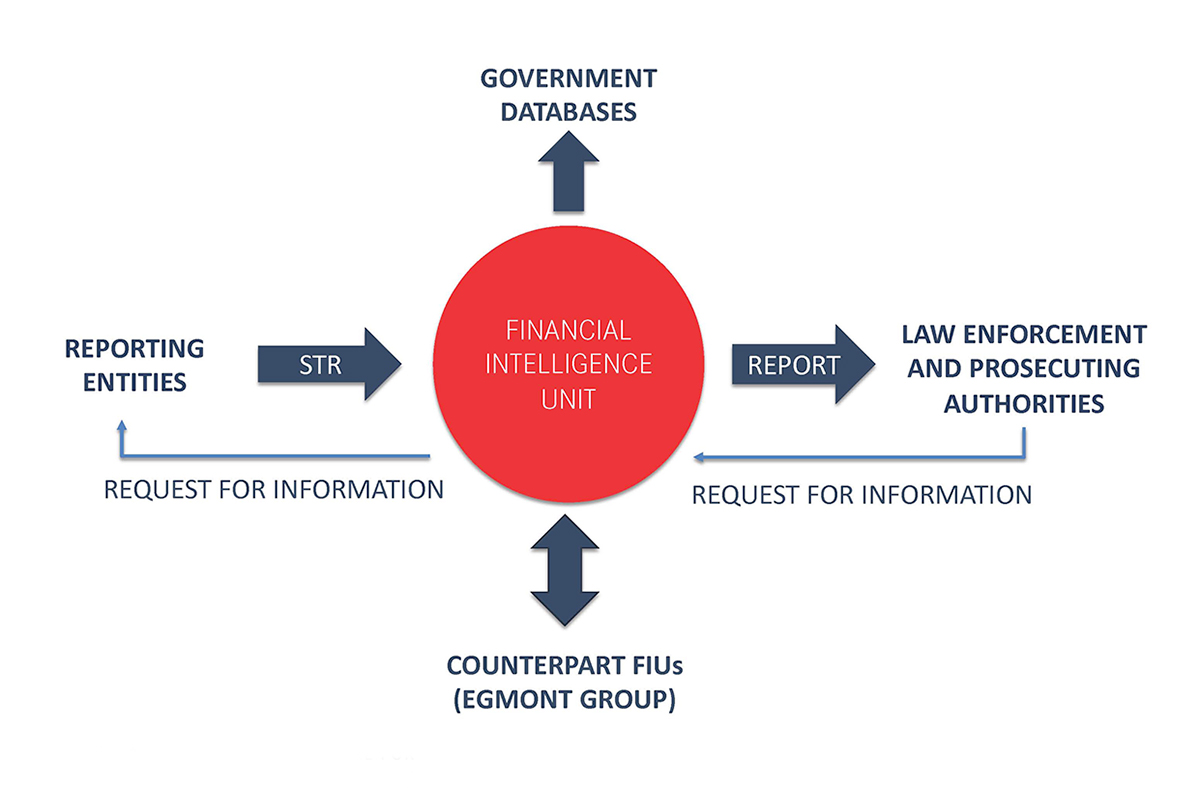

Finance
How Many Personal Loans Can I Get?
Published: February 17, 2024
Learn about the maximum number of personal loans you can get and how they can impact your finances. Understand the implications and make informed decisions.
(Many of the links in this article redirect to a specific reviewed product. Your purchase of these products through affiliate links helps to generate commission for LiveWell, at no extra cost. Learn more)
Table of Contents
Introduction
When it comes to managing finances, personal loans can be a valuable tool for individuals seeking to fund various expenses, consolidate debt, or pursue important life goals. However, the question of how many personal loans one can obtain is a common concern for many borrowers. Understanding the factors that influence the number of personal loans you can secure is crucial for making informed financial decisions.
Navigating the landscape of personal loans requires a comprehensive understanding of the borrowing process, eligibility criteria, and the potential impact of multiple loans on your financial well-being. By delving into the nuances of this topic, you can gain clarity on the feasibility of obtaining multiple personal loans and the implications of doing so.
In this article, we will explore the dynamics of personal loans, shed light on the factors that influence the number of personal loans you can acquire, and address the impact of managing multiple loans. By the end of this journey, you will be equipped with valuable insights to help you make informed decisions regarding your borrowing needs and financial stability. So, let's embark on this exploration of personal loans and discover the answers to the pressing question: How many personal loans can I get?
Understanding Personal Loans
Personal loans are a versatile financial tool that provides individuals with access to funds for a wide range of purposes, including home improvements, debt consolidation, major purchases, and unexpected expenses. Unlike specific-purpose loans such as auto loans or mortgages, personal loans offer flexibility in how the funds can be utilized, making them an attractive option for borrowers seeking financial freedom.
These loans are typically unsecured, meaning they do not require collateral, and are granted based on the borrower’s creditworthiness and ability to repay. The application process for a personal loan involves a thorough assessment of the borrower’s credit history, income, employment status, and overall financial stability. Lenders evaluate these factors to determine the borrower’s risk profile and the terms under which the loan will be extended.
Interest rates for personal loans can vary based on the borrower’s credit score and financial history. Those with strong credit profiles may qualify for lower interest rates, while individuals with less-than-ideal credit may face higher rates or additional requirements. The repayment terms for personal loans typically range from one to seven years, offering borrowers the flexibility to choose a timeframe that aligns with their financial circumstances.
Understanding the nature of personal loans is essential for individuals considering multiple loan applications. It is crucial to assess the potential impact of taking on additional debt and to weigh the benefits against the risks. By gaining a comprehensive understanding of personal loans, borrowers can make informed decisions that align with their financial goals and overall well-being.
Factors That Determine the Number of Personal Loans You Can Get
Several key factors influence the number of personal loans an individual can obtain, shaping the borrowing landscape and impacting the overall feasibility of securing multiple loans. Understanding these factors is essential for borrowers seeking to navigate the lending process and make informed decisions about their financial commitments.
- Creditworthiness: Your credit score and credit history play a pivotal role in determining your eligibility for personal loans. Lenders assess your creditworthiness to evaluate the level of risk associated with extending a loan to you. Individuals with higher credit scores are generally viewed as lower-risk borrowers and may have an easier time securing multiple loans.
- Debt-to-Income Ratio: Lenders consider your debt-to-income ratio, which compares your monthly debt payments to your gross monthly income. A lower ratio indicates a healthier financial position and may increase your chances of qualifying for multiple loans.
- Income and Employment Stability: Your income level and employment stability are crucial factors in the loan approval process. Lenders assess your ability to repay the loans based on your income and employment history. Stable employment and a steady income stream can bolster your chances of obtaining multiple loans.
- Existing Debt Obligations: If you already have outstanding debt obligations, such as credit card balances or existing loans, lenders may consider this when evaluating your loan applications. Managing existing debt responsibly can positively impact your ability to secure additional loans.
- Lender Policies: Each lender has specific underwriting criteria and policies governing the number of loans they are willing to extend to an individual borrower. Some lenders may have limitations on the total amount of debt an individual can carry, which can affect your ability to obtain multiple loans simultaneously.
By considering these factors, borrowers can gain insight into the dynamics that influence their eligibility for personal loans and the feasibility of obtaining multiple loans. It is essential to assess your financial standing in light of these factors and to engage in responsible borrowing practices to achieve your financial objectives while maintaining a healthy credit profile.
How Many Personal Loans Can You Get?
The number of personal loans an individual can secure is not explicitly defined, as it is contingent on various factors, including the borrower’s financial circumstances, creditworthiness, and the policies of the lending institutions. While there is no strict limit on the number of personal loans you can obtain, several considerations come into play when contemplating multiple loan applications.
First and foremost, borrowers should assess their ability to manage multiple loan obligations responsibly. Taking on additional debt entails a financial commitment that must be carefully evaluated to ensure it aligns with your overall financial health. It is essential to consider the impact of multiple loan repayments on your monthly budget and long-term financial goals.
Furthermore, each loan application triggers a hard inquiry on your credit report, which can temporarily impact your credit score. Therefore, submitting numerous loan applications within a short timeframe can potentially raise red flags to lenders and may have adverse effects on your creditworthiness.
While there is no set limit on the number of personal loans you can obtain, exercising prudence and conducting a thorough assessment of your financial needs and capabilities is crucial. It is advisable to consider the purpose of each loan, the terms and conditions offered by lenders, and the overall impact on your financial well-being before pursuing multiple loan arrangements.
Ultimately, the decision to pursue multiple personal loans should be approached with careful consideration and a clear understanding of the associated responsibilities. By evaluating your financial capacity, maintaining a healthy credit profile, and engaging in responsible borrowing practices, you can make informed decisions regarding the number of personal loans that align with your financial objectives.
The Impact of Multiple Personal Loans
Managing multiple personal loans can have significant implications for your financial well-being and credit standing. It is essential to carefully consider the impact of juggling multiple loan obligations and the potential consequences on your overall financial stability.
One of the primary considerations is the impact on your credit score. Each new loan application and subsequent loan account adds to your overall debt profile and can influence your credit utilization ratio and credit history. This, in turn, can impact your credit score, potentially making it more challenging to secure favorable terms on future credit products.
Furthermore, servicing multiple loans concurrently requires diligent financial planning to ensure timely repayments. Missing payments or defaulting on any of the loans can have severe repercussions, including negative entries on your credit report, collection actions, and potential legal consequences. It is crucial to assess your ability to manage multiple loan repayments and to prioritize responsible debt management to safeguard your financial standing.
Additionally, the cumulative impact of multiple loan repayments on your monthly budget should not be overlooked. Each loan installment contributes to your overall debt burden, potentially limiting your financial flexibility and impacting your ability to pursue other financial goals or weather unexpected expenses.
Despite these considerations, effectively managing multiple personal loans can also have positive implications. Making consistent, on-time payments on multiple loans can demonstrate responsible financial behavior and contribute to a positive credit history, potentially enhancing your creditworthiness over time.
Ultimately, the impact of multiple personal loans hinges on your ability to manage them effectively and responsibly. By carefully evaluating the potential consequences, maintaining a clear understanding of your financial capabilities, and prioritizing prudent debt management, you can navigate the complexities of multiple loans while safeguarding your financial well-being.
Conclusion
Navigating the realm of personal loans and assessing the feasibility of obtaining multiple loans requires a nuanced understanding of the borrowing process, individual financial circumstances, and the potential impact on one’s overall financial well-being. While there is no strict limit on the number of personal loans one can obtain, borrowers must approach the decision with careful consideration and a clear assessment of the associated responsibilities.
Understanding the factors that influence the number of personal loans you can acquire, such as creditworthiness, debt-to-income ratio, income stability, existing debt obligations, and lender policies, is essential for making informed borrowing decisions. By evaluating these factors, borrowers can gain insight into their eligibility for multiple loans and the potential implications of managing them concurrently.
It is crucial to approach the decision to pursue multiple personal loans with prudence, considering the impact on one’s credit score, financial obligations, and overall budget. Responsible borrowing practices, diligent financial planning, and a clear understanding of the potential consequences are paramount in effectively managing multiple loans while safeguarding one’s financial stability.
Ultimately, the decision to pursue multiple personal loans should align with your financial objectives and be supported by a comprehensive assessment of your financial capacity and borrowing needs. By exercising prudence, maintaining a clear understanding of the associated responsibilities, and prioritizing responsible debt management, borrowers can make informed decisions regarding the number of personal loans that best serve their financial goals.
As you navigate the landscape of personal loans, remember that each financial decision should be made with a keen awareness of its impact on your overall financial well-being. By approaching borrowing with diligence and informed decision-making, you can leverage the benefits of personal loans while maintaining a strong financial foundation.














